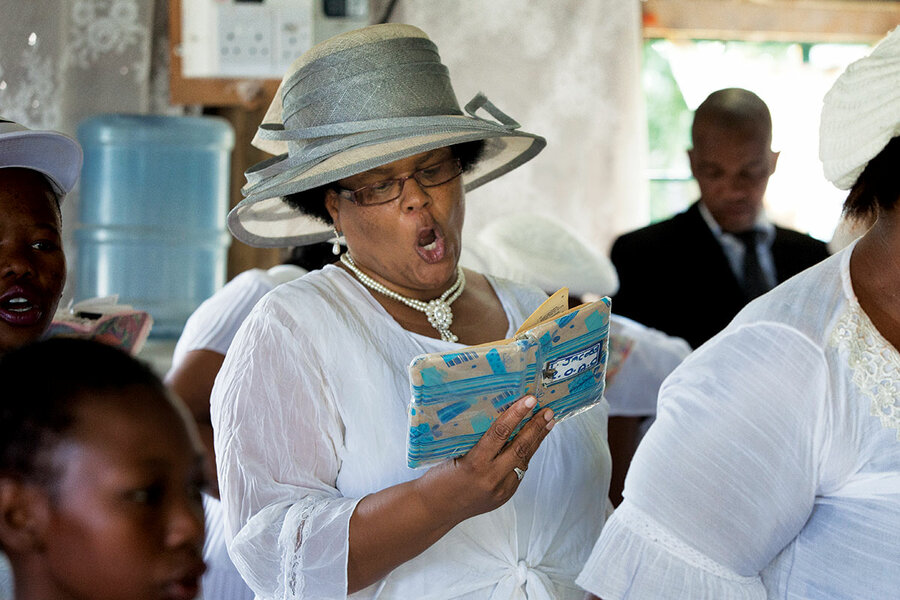My first trip abroad helped me appreciate home
Loading...
Decades ago, an older friend was so certain that I needed the transformative influence of travel that she paid for my passport application fee. Alas, becoming a better person would have to wait, because I was a broke seminary student and the passport went unused.
My friend was not the only one who believed in the notion of enlightenment through travel; many respected authors have lauded travel as a path to betterment. In “The Innocents Abroad,” Mark Twain promised, “One must travel, to learn.”
The adoration of travel has given it a religious hue. What can save you from the drudgery of daily life? Travel. What can restore luster to a life worn by stress? A trip. What can give rest to a restless heart? A boarding pass and an itinerary full of far-flung stops.
After 37 years, I finally had the occasion to test the legitimacy of these promises as I traveled abroad for the first time in my life. The purpose of my travel was to teach at a Lutheran seminary in Pretoria, South Africa. As a pastor in Michigan serving a multiethnic congregation with many refugees, I hoped the promises about enlightenment were true and I would return as a more compassionate and empathetic person.
And, yet, I had my doubts.
What if traveling failed to produce any moral and intellectual enlightenment within me? What if I was traveling around the globe to a racially divided place only to find that I am living in a racially divided place? Could it be possible that the trillions of dollars that Americans spend on travel is all for nothing more than Instagram posts and trinkets from tchotchke shops? What if travel is a pilgrimage without a purpose?
Traveling abroad, I came to find out, revealed my utter lack of curiosity at home. It taught me that my ordinary life at home is quiescently teeming with wonder, beauty, complexity, and adventure – if only I have the eyes, ears, and curiosity to appreciate it.
It was not the lions and zebras that brought about this revelation. Rather, it was pigeons and weeds.
Immediately upon arriving in South Africa, I was captivated by birdcalls: It was a world of chirps and tweets, hoots and caws. I found myself asking locals what sort of bird produced each sound. “You must be quite the ornithologist back at home,” one of the faculty members at the seminary said. I am not. I am hard-pressed to name more than five birds that frequent my backyard, let alone identify birdcalls. It turns out that I am captivated by other people’s birds, but not my own.
I was flummoxed to find out that the birdcalls that so captivated me were from pigeons, a pest by most standards. The most common birds – the ones that the locals no longer noticed or cared about – transfixed my eyes, ears, and curiosity.
Similarly, I found myself eagerly pointing out weeds while taking a hike with a local friend. I kept asking him, “This plant is beautiful – what is this called?” “That’s just a weed,” was his dry response. “Well, what about this one? This must be something special.” “Nope. Those are just more weeds.”
The pigeons and weeds were just the beginning. I found it to be a beautifully complex place and people. The subtleties of language, race, and wealth within South Africa opened new lands of curiosity within me.
These questions abroad raised questions at home: What do I overlook and ignore, dismiss, and disdain where I live? If the pigeons and weeds, language, and wealth disparity of South Africa can captivate me, is it possible to find wonder and curiosity in the banality of my backyard and nearest neighbors?
The Christian faith has a liturgical season known as ordinary time. It is the season between feasts, a time between Christmas and Easter. This longest season of the church’s year is named after the ordinal numbers used to keep track of which Sunday it is within the season. While it is easy to be wonder-struck on the feast days, these experiences are harder to come by in ordinary time.
In the same way, it’s easy to be curious while traveling to faraway places, yet harder to hold on to curiosity and wonderment at home. Our work is to find the beauty in the ordinary, the in-between.
Cultivating curiosity at home and living deeply within ordinary time requires having the posture of a traveler: Gaze at weeds and pigeons. Ask questions. Talk to strangers. Live as if your daily commute – the life lived in ordinary time – is an endless adventure.







